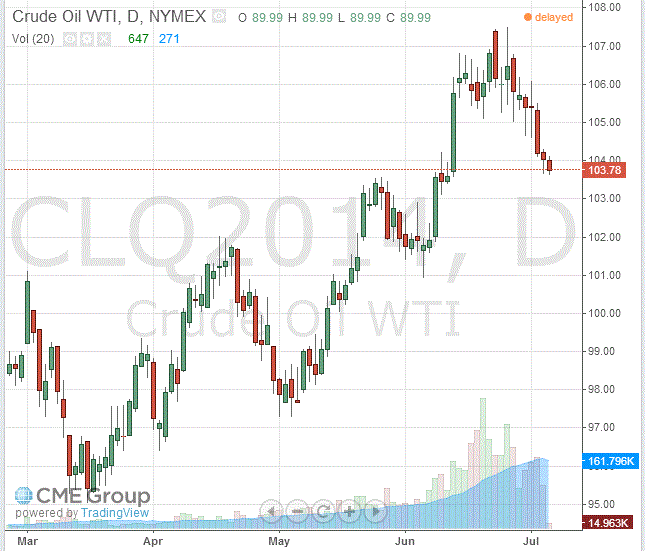- Oil: an overview of the market situation
Market news
Oil: an overview of the market situation
Prices of oil futures fell slightly today, but in the week showed maximum decline from the beginning of January. The focus of the market is still in the Middle East.
"Concerns about the declining supply, but prices are kept at a high level due to Iraq. Improving consumption forecasts combined with fears for delivery. Under such conditions, sell a few," - said vice-president of IHS Energy Insight Victor Shum. "If not for Iraq, the price would be much lower due to the possibility of increasing supplies from Libya and Iran"
It is worth noting that investors follow the negotiations on Iran's nuclear program that could lead to the lifting of sanctions, including Iran's oil exports. As for Libya, earlier this week the Prime Minister announced the end of the oil crisis, during which exports almost stopped.
At the same time, the Government of Iraq in the autonomous province of Kurdistan threatens to sue the central government does not recognize the right to an independent Kurdistan oil exports. In Syria, the Islamists seized the country's largest oil field, but Syria is not among the major oil producers and oil exported since 2011, when it came to international sanctions.
Meanwhile, we add that the American brand of WTI crude oil has suffered greater losses than Brent, responding to concerns that the hurricane "Arthur", coming to the shores of the United States, will reduce the demand for gasoline from the Americans, who during the holidays may prefer to stay at home.
Also note that today the trading volume declined as U.S. markets closed for the Independence Day holiday.
Cost of the August futures on U.S. light crude oil WTI (Light Sweet Crude Oil) fell to $ 103.78 a barrel on the New York Mercantile Exchange (NYMEX).
August futures price for North Sea Brent crude oil mixture fell 20 cents to $ 110.82 a barrel on the London exchange ICE Futures Europe.
